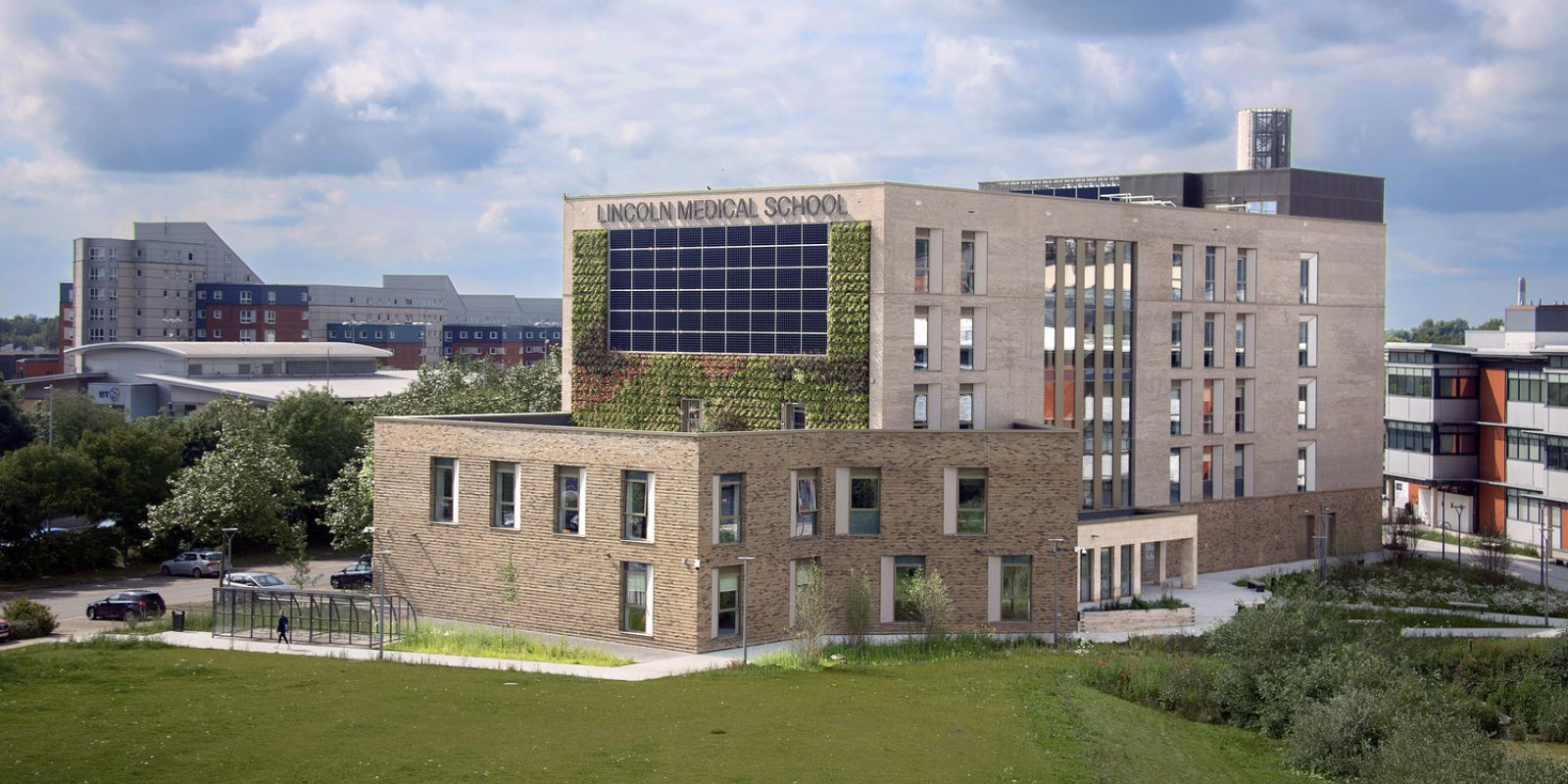‘From bench to bedside’: the Lincoln International Institute for Rural Health (LIIRH)
Projects Skills and Training BlogsLaunched in April 2020, the Lincoln International Institute for Rural Health (LIIRH), is a bold new initiative by the University of Lincoln.
Based in Lincoln Medical School, the institute aims to shine a light on the health inequalities that exist between rural and urban communities and the challenges of delivering modern, high-quality care to rural communities both in Lincolnshire and across the globe. The LIIRH office facilities have been part funded by the Greater Lincolnshire LEP and the Wolfson Institute.
The health and care sector, which currently employs 58,000 people in Greater Lincolnshire and is worth £2bn per annum to our local economy, has been recognised as a priority sector by the Greater Lincolnshire LEP. Opportunities include developing and embedding innovation across the NHS through the new Schools of Life Sciences and Pharmacy at the Lincoln Science and Innovation Park, deploying assistive technology, and ensuring our housing stock can meet the whole life needs of residents.
Bringing together international experts with specialist expertise across a range of rural health concerns, LIIRH benefits from newly appointed facilities for research, training, and community engagement over a floor space of 695m2 to deliver high-quality innovative and sustainable research.
The LIIRH currently shares offices and collaborative spaces with:
- The Community and Health Research Unit (CaHRU)
- The Clinical Trials Unit (CTU)
- The National Centre for Rural Health and Care (NCRHC).
This shared space facilitates inter-disciplinary research that enables the delivery of cutting-edge research from bench to bedside.
At present, one research team from the institute is working with Lincolnshire Clinical Commissioning Group (LCCG), East Midlands Cancer Alliance and Macmillan Cancer Support to develop a new online resource that supports people affected by cancer by making their experience data publicly available and accessible. Shared Lives®: Cancer (SL:C) is a searchable website of quotes and stories concerning all aspects of people’s cancer journeys. The data that has been used to populate the resource covers a wide range of ages, genders, cancer types, and treatments received. Pilot and evaluation research is currently being designed to evaluate and improve website accessibility, usability, and functionality of SL:C, before its launch later in 2022 at the Lincolnshire Cancer Summit.
Rurality is a principal theme at the University of Lincoln, and a key aspect of the university’s civic mission. LIIRH is uniquely placed at the heart of England’s second largest county to help better understand the health and care concerns of remote communities on the east coast of Lincolnshire, one of the most complex and rurally challenged areas of the UK.
Director of the institute Professor Frank Tanser said: “Healthcare in rural areas is often made worse by the geographical remoteness and a lack of infrastructure. The institute has been working hard to deliver, analysis, critical insights, and innovative solutions for the benefit of rural communities.
“Since the institute was established, the enthusiasm and support from Lincolnshire's health and care sector has been amazing […] we have developed a global network of academic partners from Germany, Canada, South Africa and across the world who we’ll collaborate with to deliver knowledge, insights, and solutions to many of the key challenges around rural health and care.”
The disparity between rural and urban areas is rising, particularly in developing countries with differences in morbidity and mortality rates, referred to globally as the ‘rural mortality penalty’. Rural populations have higher odds of developing chronic diseases and preventable conditions (obesity, ischemic heart disease, COPD, diabetes, cancer, and injury) as well as unhealthier, risky behaviours (substance abuse, smoking) compared to urban populations, and face challenges accessing care. The recent Covid-19 epidemic has highlighted the vulnerability of rural communities during an outbreak.
To discover more about LIIRH’s activities you can visit the institute’s website. To find out more about research initiatives locally and globally alongside the University of Lincoln’s civic commitments and aspirations visit the Research at Lincoln site.


